The call for peacefulness between Aboriginal and Torres Strait Islander Australians and other Australians has been renewed in the public sphere recently due to the Uluru Statement from the Heart, but the need for Positive Peace and reconciliation has been a long-standing issue for all Australians.
The IEP Partnerships team felt this desire for peace during the Positive Peace workshop they facilitated with the Moree (Gomeroi) community in September of this year. Run in partnership with Just Reinvest and funded by the Calleo Indigenous Community Fund (CICF), the workshop brought together a range of Aboriginal community members, councillors, business owners and proud community members to discuss how Positive Peace could be of most use to them.
The workshop had three main focuses:
Over two days participants came together to discuss issues facing the town, the historical landscape these issues exist within, and how they can work together to overcome them. It was highlighted in the workshop that while the problems burdening the town disproportionately affect the Aboriginal community, it is the community as a whole that must tackle them.
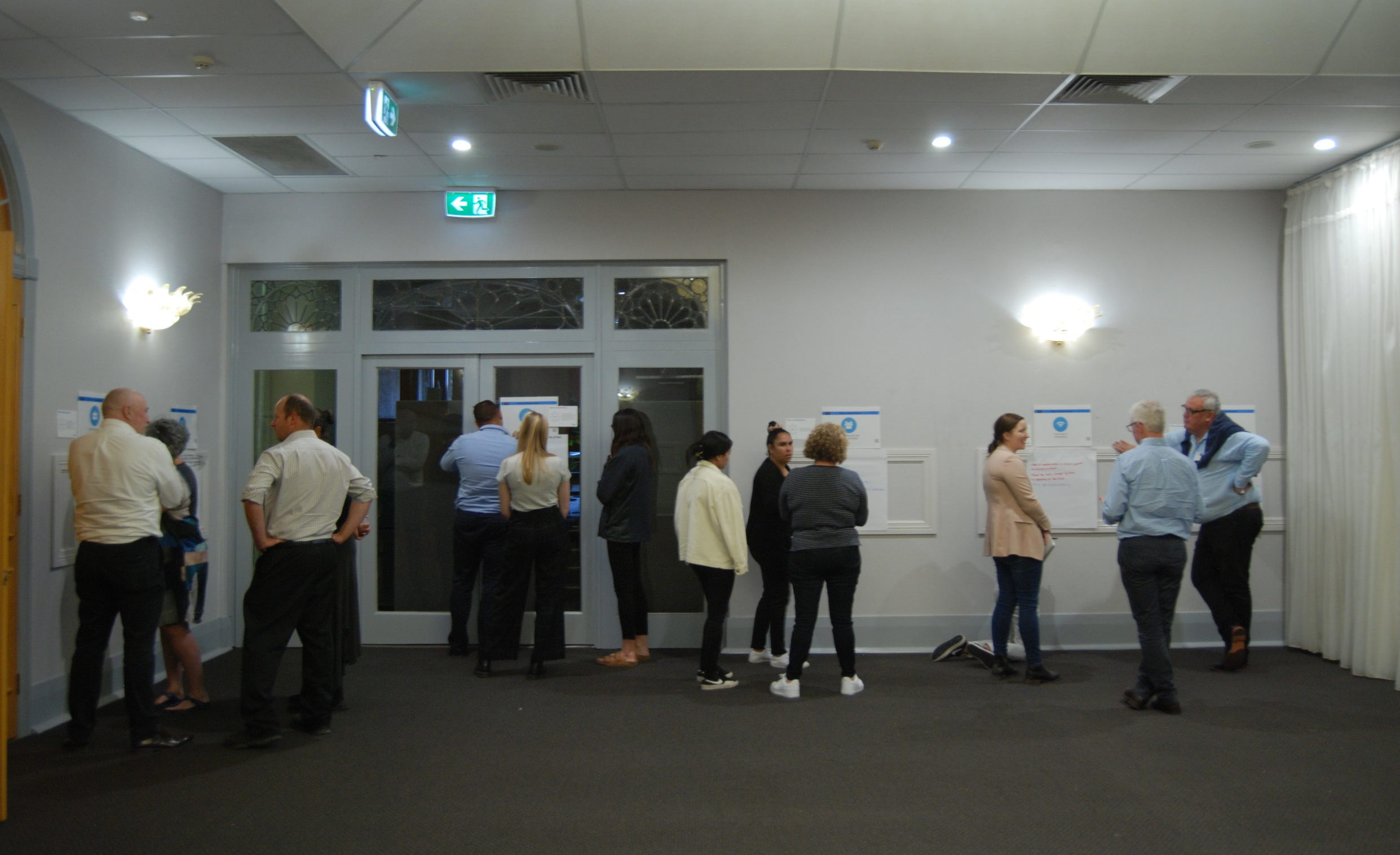
The first day saw participants come together with some trepidation to discuss broad understandings of peace and peacefulness. Aided by hands-on activities, the group began to open up and engage in discussion, sharing personal insights and experiences of peacefulness, or lack thereof, in their town.
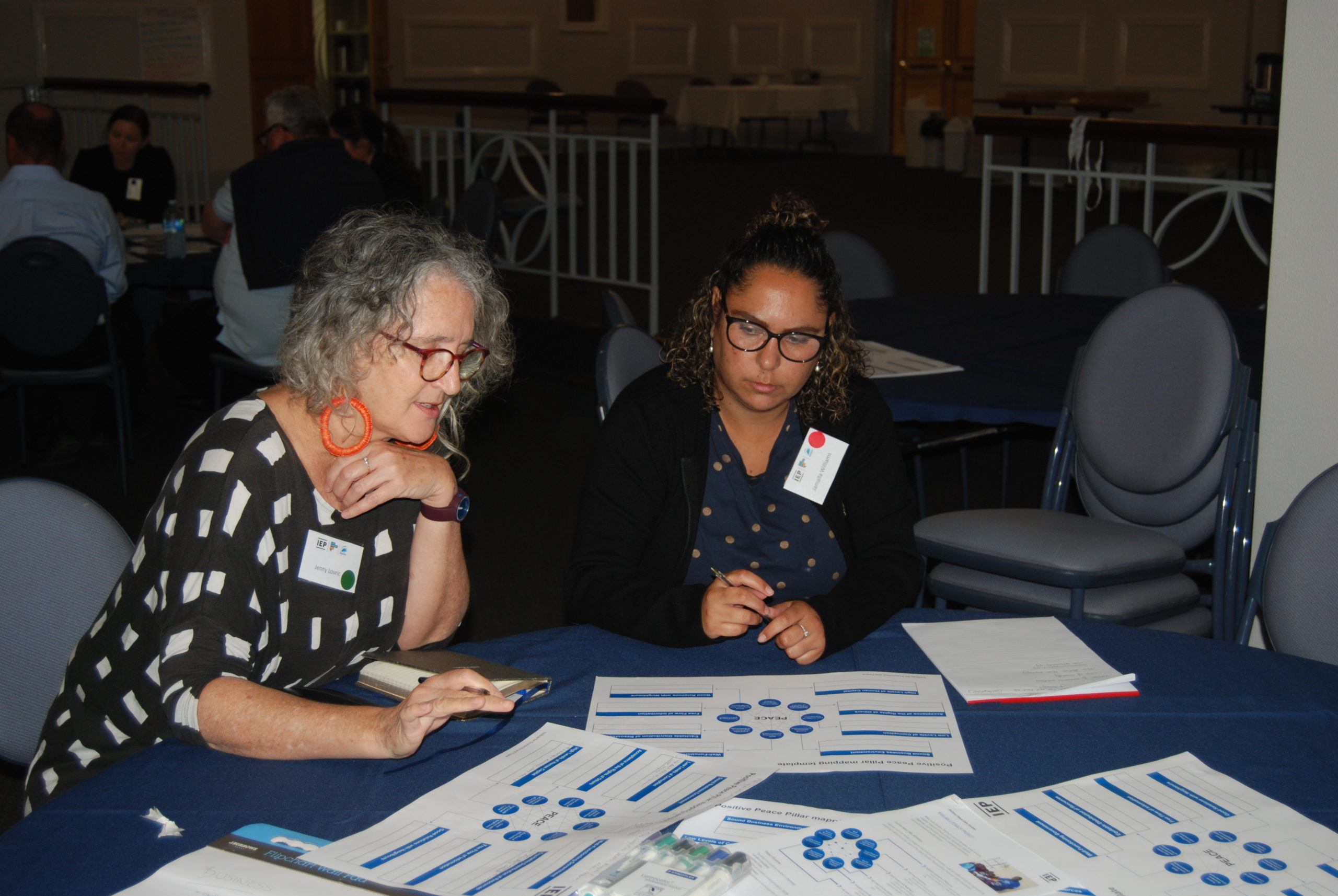
Aided by a concrete understanding of the pillars of Positive Peace, the second day of the workshop saw participants more deeply into the issues facing their town as they brainstormed creative solutions using the eight pillars.
Exploring issues of mental health, infrastructure, community collaboration and refining service provision, participants discussed the prominent issues facing their whole community and what the variety of stakeholders in the room could do to combat these.
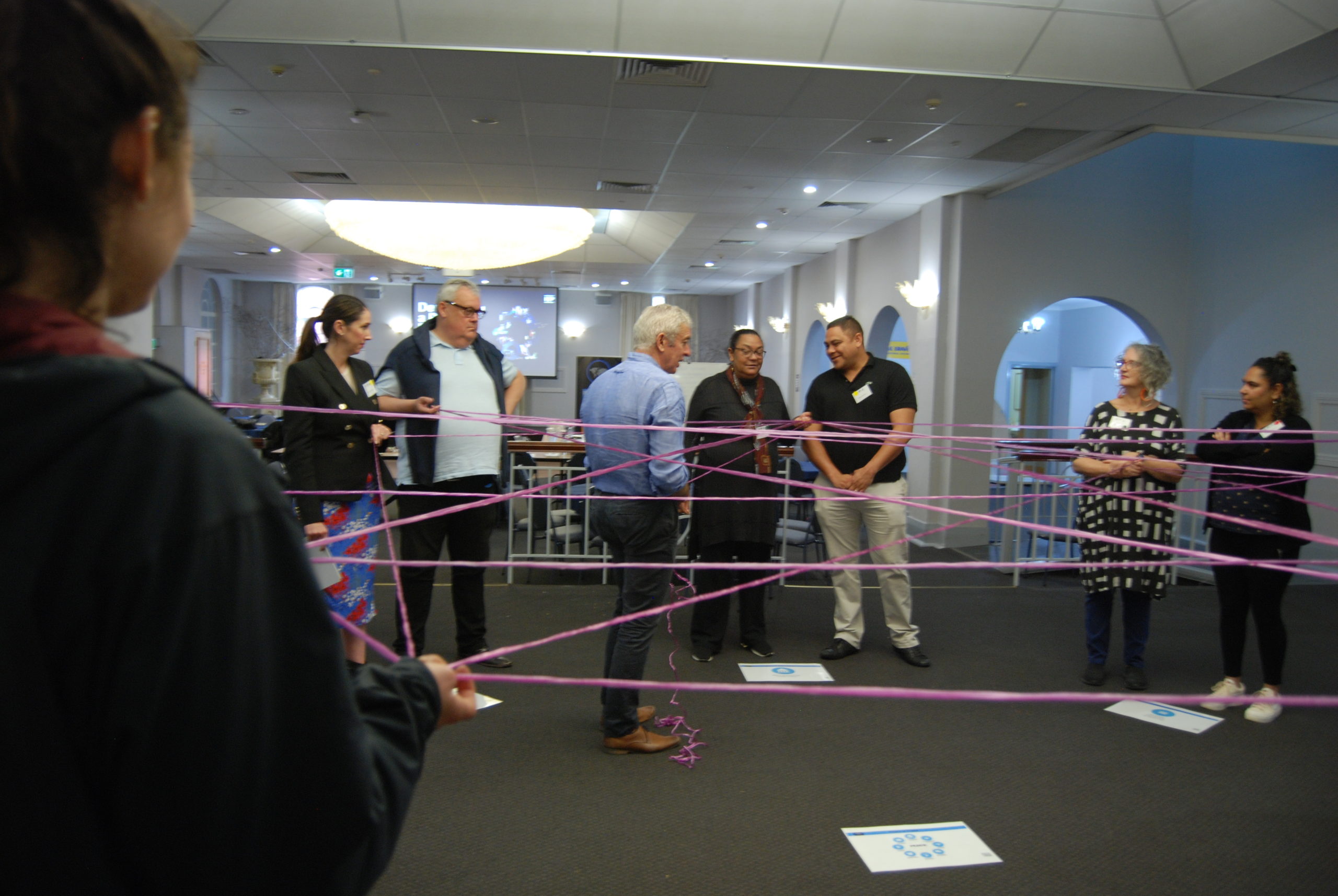
Two key projects came out of these discussions, with the first being a community services directory for locals to explore the range of services available in their community. This action was inspired by the ‘Free Flow of Information’ and ‘Equitable Distribution of Resources’ pillars, in response to the wide array of available services but relatively low awareness of these from those who might benefit from them.
The second project involved the ‘Well Functioning-Government’, ‘Equitable Distribution of Resources’ and ‘Acceptance of the Rights of Others’ pillars. This project centered on arranging for a psychiatrist to regularly visit and provide diagnostic services, particularly for youth and adolescents, in order to address mental health issues early on. The group acknowledged this may require government intervention. It would also require more work to change community perceptions of mental illness, as well as encouraging residents to seek professional assistance.
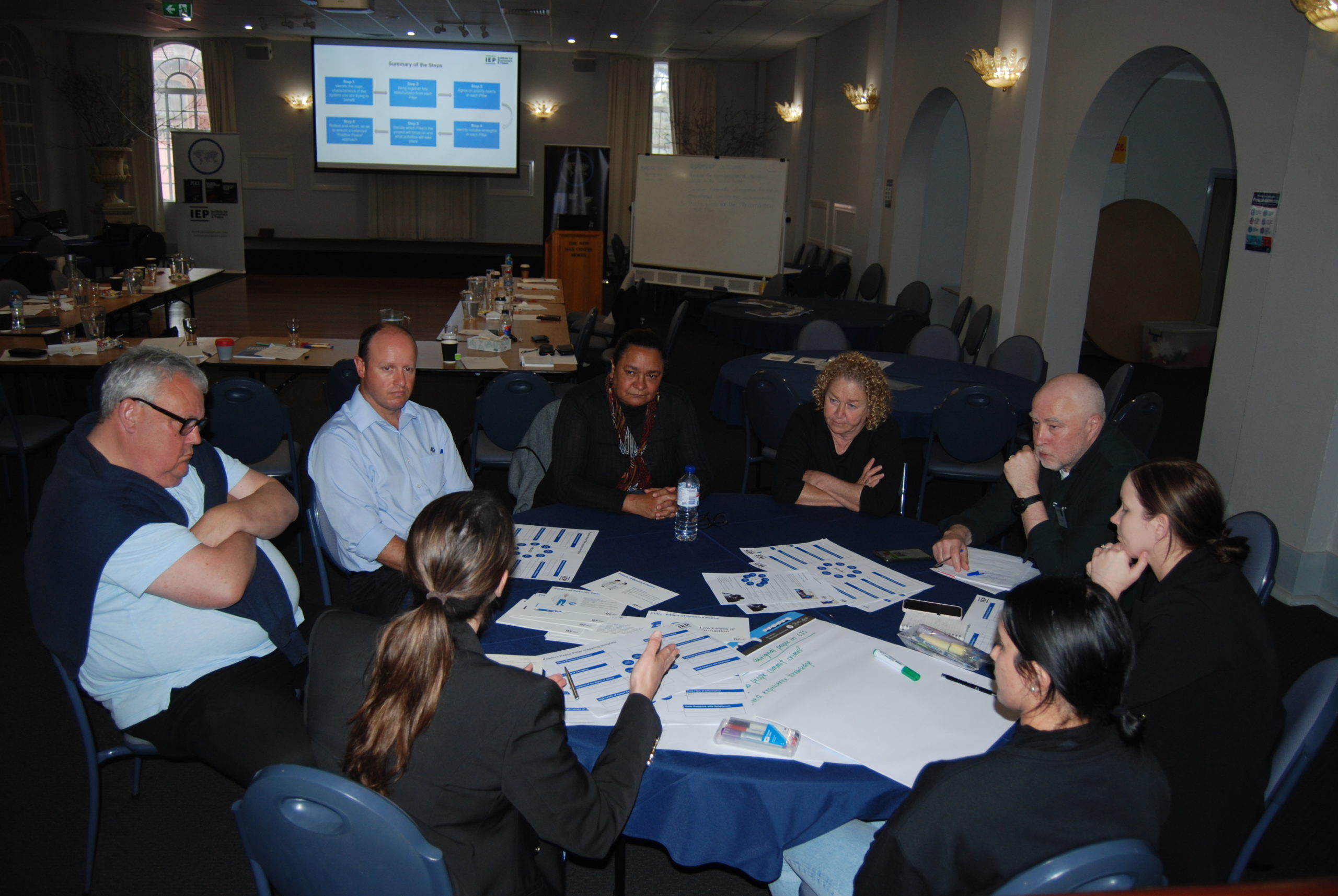
While analysing the pervasiveness of these issues and the opportunities for further actions would require a greater length of time, participants reported feeling more hopeful and motivated by the end of the second day due to their newfound knowledge and skills.
As a rural town Moree has faced a number of challenges in recent history. These have included a lack of development, bank closures and floods that have devastated not only infrastructure, but the farming industry which employs many local community members. Combining this with the historical trauma and human rights abuses faced by many of its residents, as a town with a high proportion of Aboriginal and Torres Strait Island people, Moree is a community in need of support.
Deputy Mayor Susannah Pearce praised the workshop as a strong learning opportunity, underlining the importance of truth-telling and active listening when addressing community issues, particularly due to the Council’s history with the local Aboriginal and Torres Strait Islander community. Mayor Mark Johnson mirrored these reflections, acknowledging the sensitivity of these issues and his increased confidence in addressing these following the workshop discussions.
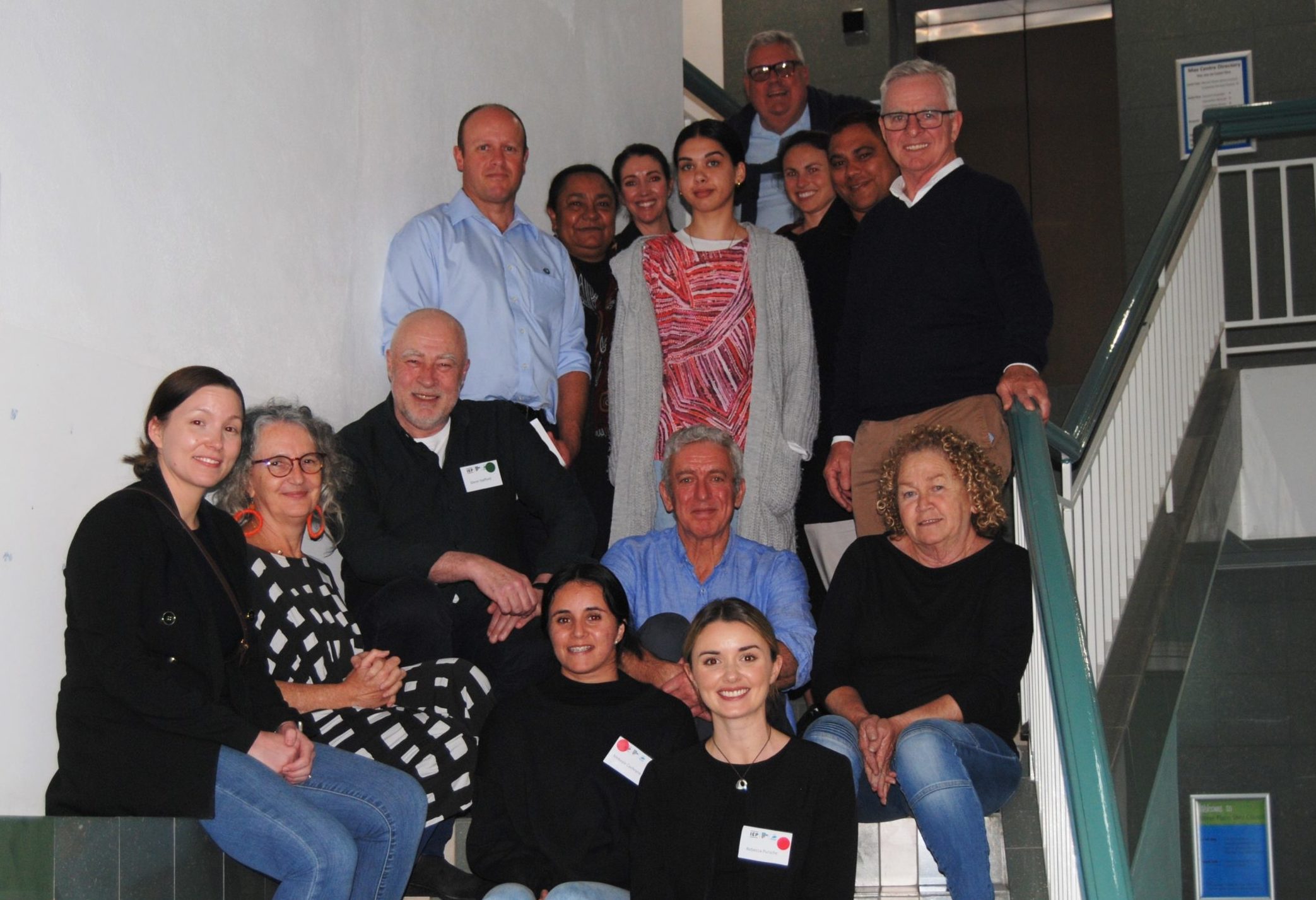
IEP staff have reflected that the most enjoyable aspect of the workshop was working with diverse participants, who had come together in the same room to begin difficult conversations around shared goals. Seeing their openness and attitudes change over the course of the workshop filled the room with a sense of hope and optimism for the community’s future.